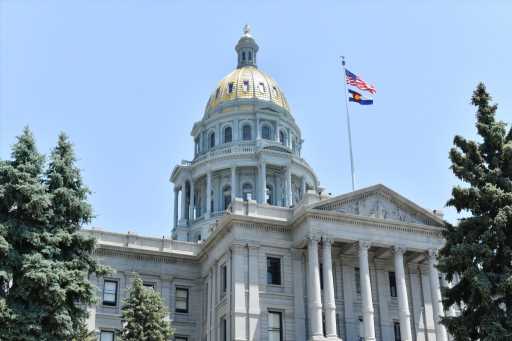Colorado Democrats voted down three Republican abortion bills Wednesday night and early Thursday as the nation’s top court considers the future of enshrined federal protections for the procedure.
Two of the Republican proposals would have criminalized abortion outright in the state. The third would have coerced doctors into reporting to the state more information about patients who end their pregnancies to better understand the reason for the procedure, which opponents fought as invasive and intimidating to patients.
The Colorado debates happened as Democratic leadership prepares a bill to enshrine the right to abortion in state law in case the U.S. Supreme Court overturns its prior decisions that enumerated the right. The court is Nationally, legislatures in several Republican-led states have either recently enacted or are considering new restrictions on abortion access.
The Supreme Court is currently considering one such law out of Mississippi, which bans abortions after 15 weeks. That time limit is at odds with precedent set in the landmark case Roe v. Wade, which established a constitutional right to an abortion until fetal viability, which is generally seen as about 23 weeks into pregnancy.
In Arizona, Florida, and West Virginia, a proposal to ban abortions after 15 weeks of gestation has passed at least one legislative chamber, according to online news service The 19th. In the fall, Texas enacted a six-week abortion ban and deputized citizens to bring civil lawsuits to enforce it. Colorado providers testified Wednesday night to seeing an increase in patients from Texas since the law’s enactment.
In Colorado, the proposed bills followed an annual ritual at the Capitol when it comes to abortion restriction, with hours of testimony that was at times emotional, impassioned and sinister before falling to almost predetermined, party-line outcomes. Democrats hold a 17-seat advantage in the House, and a 7-4 advantage in the committees that determine if a bill makes it to the full House.
“With the Supreme Court likely to strike down Roe v. Wade, it’s more important than ever that we defeat these extreme Republican bills that would ban abortion in Colorado,” state Rep. Susan Lontine, D-Denver and chair of the Health and Insurance Committee, said in a statement after the hearing. “Coloradans have said time and time again that we trust women to make their own decisions and we don’t want to imprison doctors or ban abortion. We won’t let Republican politicians take us back to a time when women died while trying to seek the care they need.”
State Rep. Patrick Neville’s bill, titled “Protect Human Life at Conception,” shares a name with bills introduced — and voted down in committee — every year since 2016. The iteration introduced this year would make a person who performs an abortion guilty of a felony.
State Rep. David Williams’ bill, titled “Abolishing Abortion in Colorado,” would include “an unborn child at every stage of gestation from fertilization until birth” under the the definition of who could be a victim of homicide or assault under state law.
He introduced a bill in 2020 intended to ban most abortions after 22 weeks of gestation, which likewise failed in committee. Colorado voters rejected a similar proposal at the ballot box that same year, 59% opposed with 41% supporting it. That was the fourth time voters said no to abortion restrictions since 2008.
For the second consecutive year, state Rep. Stephanie Luck proposed a bill titled “Induced Termination Of Pregnancy State Registrar” with the stated goal of improve and expand data collection from abortion providers to better understand why people get the procedure. The version she introduced would require providers to report their patients’ demographics, any prior abortion history, and why they received the treatment. If the providers didn’t they could face repercussions to their license to practice medicine.
In her opening remarks, she characterized it as a “boring bill” about collecting anonymous, aggregated data to help guide policymakers. Opponents called it an abortion surveillance bill. It was met with Democrats asking, among other things, why is a personal health care decision anyone’s business but the patient’s?
“Patients have a right to expect privacy and confidentiality when they are seeking medical care,” state Rep. Emily Sirota, D-Denver, said. “It is not the government’s job to interfere with the doctor-patient relationship with three pages of intrusive and judgmental questions.”
Luck said she didn’t have any intention for people seeking abortions to feel shamed or intimidated. She argued medical professionals already report sensitive, anonymous information and she wanted to make abortion data more uniform.
“If we change the name of this bill, to basically any other piece of data, would you have an objection?” Luck asked. “If you wouldn’t have an objection then is it more about this larger abortion conversation than about the data itself?”
Both Neville and Williams introduced their bills as explicitly rooted in conservative Christian values around protecting human life. As Williams’ bill headed toward being voted down, Neville said his Republican colleague would be “on the right side of history,” and likened it to Colorado Gov. Ralph Carr standing against internment camps for Japanese Americans during World War II.
Source: Read Full Article
